 Petzlover
Petzlover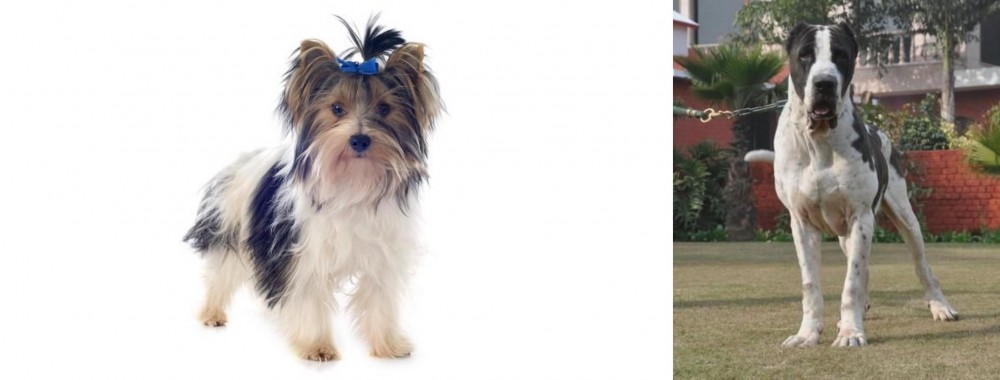 Biewer is originated from Germany but Bully Kutta is originated from India. Biewer may grow 67 cm / 26 inches shorter than Bully Kutta. Biewer may weigh 86 kg / 189 pounds lesser than Bully Kutta. Biewer may live 3 years more than Bully Kutta. Biewer may have less litter size than Bully Kutta. Biewer requires High Maintenance. But Bully Kutta requires Low Maintenance
Biewer is originated from Germany but Bully Kutta is originated from India. Biewer may grow 67 cm / 26 inches shorter than Bully Kutta. Biewer may weigh 86 kg / 189 pounds lesser than Bully Kutta. Biewer may live 3 years more than Bully Kutta. Biewer may have less litter size than Bully Kutta. Biewer requires High Maintenance. But Bully Kutta requires Low Maintenance
 The Biewer is, or was, a piebald Yorkie caused by a recessive gene in a breeding of two Yorkshire Terriers. On Jan 20, 1984 a piebald Yorkshire puppy was born in Hunsruck, Germany to Gertrud and Werner Biewer. The puppy was considered beautiful and the Biewer’s fell in love with it and began a process od selective breeding in an effort to breed piebald Yorkies. Based on a friend’s suggestion, they named this group of puppies, “Biewer Yorkshire Terrier a la Pom Pon”. By 1989 the Allgemeiner Club der Hundefreunde Deurschland (ACH) officially recognized the Biewer Yorkie as a separate breed. Today they are recognized world wide as two separate breeds.
The Biewer is, or was, a piebald Yorkie caused by a recessive gene in a breeding of two Yorkshire Terriers. On Jan 20, 1984 a piebald Yorkshire puppy was born in Hunsruck, Germany to Gertrud and Werner Biewer. The puppy was considered beautiful and the Biewer’s fell in love with it and began a process od selective breeding in an effort to breed piebald Yorkies. Based on a friend’s suggestion, they named this group of puppies, “Biewer Yorkshire Terrier a la Pom Pon”. By 1989 the Allgemeiner Club der Hundefreunde Deurschland (ACH) officially recognized the Biewer Yorkie as a separate breed. Today they are recognized world wide as two separate breeds.
Today there have been genetic studies done that have declared the Biewer Terrier to be a separate and distinct breed from the Yorkshire Terrier, not simply tricolored Yorkies. The BTCA (Biewer Terrier Club of America) changed the name and standard to an original one for the Biewer Terrier. Mrs. Biewer has accepted and signed this revised standard and it is the only one she has accepted. This new standard allows the Biewer Terrier to have a black coat and an undocked tail. In 2014 with the new standard the American Kennel Club Foundation Stock Service (ACK/FSS) accepted the Biewer Terrier. Some breeders still want the breed called the Biewer Yorkshire a la Pom Pon, but Mrs. Biewer has objected to this, insisting the dog is a terrier. The Biewer Breed Club of America (BBCA) insists on the breeding of Biewers only to other Biewers. This is opposed by others who are importing Biewers and breeding them with Yorkies. The result is not recognized as a purebred dog. BBCA breeders do not engage in this type of cross breeding or condone them. The BBCA breeds only dogs that meet the standard set by the BTCA.
The first two Biewers were imported to the States in 2003 by Donna Hall. They made history in 2003, when they were accepted by the IABCA (International All Breed Canine Association) and entered their first dog show. Today they are shown in rare breed dog shows around the world. Today there are two standards in operation for the Biewer as the American Biewer and the North American Kennel Club continue to follow the German standard while the BBCA follow the revised standard approved by Mrs. Biewer.
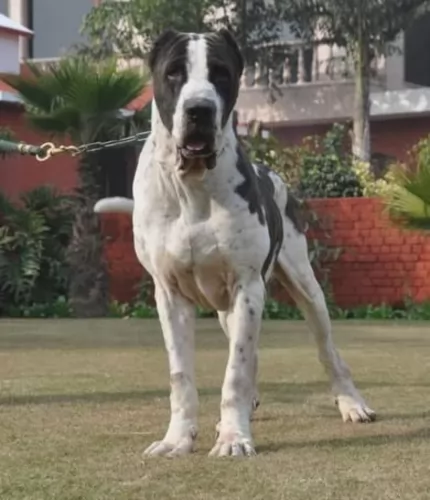 This well built, powerful dog breed is also known as Indian Alangu Mastiff or Pakistani Mastiff. These dogs come from the Punjab and Sindh region of the Indian subcontinent. It is believed that mastiff dogs came with British soldiers during the British invasion, however English Mastiffs, Bulldogs, Bull Terriers and Great Danes are seen as potential ancestors of this large dog.
This well built, powerful dog breed is also known as Indian Alangu Mastiff or Pakistani Mastiff. These dogs come from the Punjab and Sindh region of the Indian subcontinent. It is believed that mastiff dogs came with British soldiers during the British invasion, however English Mastiffs, Bulldogs, Bull Terriers and Great Danes are seen as potential ancestors of this large dog.
There are disputes about the country of origin of this breed, and some people claim that the dog comes from India, while others say it comes from Pakistan. Certainly in Pakistan these dogs are still used for fighting.
 This long-haired terrier is a neat and compact toy dog. Their hair should be as long as their body is high and hang straight from the bottom of his skull to the end of his tail which is carried upward. He is a well proportioned and powerful little dog. He has no undercoat, but his overcoat is very much like human hair and should be combed. The head is a signature of the Biewer, covered with symmetrical gold, white and blue/black hair. They have flat, small heads and a black nose with an average muzzle. They have intelligent, dark, medium sized eyes and small ears shaped as a V and standing erect. All four legs are straight, and the hips are well formed. They have round feet and an undocked tail.
This long-haired terrier is a neat and compact toy dog. Their hair should be as long as their body is high and hang straight from the bottom of his skull to the end of his tail which is carried upward. He is a well proportioned and powerful little dog. He has no undercoat, but his overcoat is very much like human hair and should be combed. The head is a signature of the Biewer, covered with symmetrical gold, white and blue/black hair. They have flat, small heads and a black nose with an average muzzle. They have intelligent, dark, medium sized eyes and small ears shaped as a V and standing erect. All four legs are straight, and the hips are well formed. They have round feet and an undocked tail.
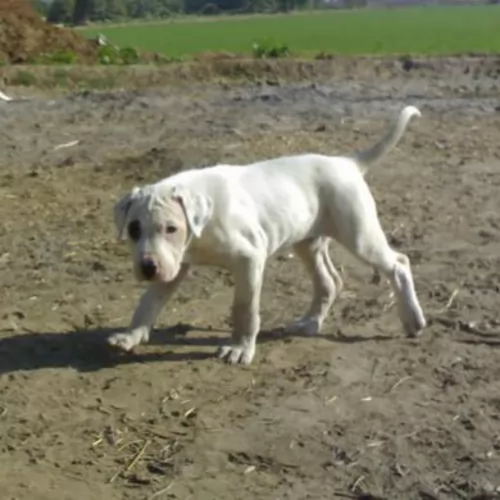 The Bully Kutta is a big, heavy, muscular dog, standing at roughly 81 – 89cm and weighing in at 70–90kg. He isn’t particularly good with children or with other pets simply because the dog is aggressive by nature. If you do opt for this large breed, you’re going to need a large garden and he is going to require a lot of exercise.
The Bully Kutta is a big, heavy, muscular dog, standing at roughly 81 – 89cm and weighing in at 70–90kg. He isn’t particularly good with children or with other pets simply because the dog is aggressive by nature. If you do opt for this large breed, you’re going to need a large garden and he is going to require a lot of exercise.
This is a dog breed that is going to require socialization and training if you want him to be obedient and calm, as he is inclined to be a dominating breed. He’s an intelligent dog and when well trained, he makes a splendid pet with firm, fair owners.
The Bully Kutta has a large, broad head which is supported by a thick well-muscled neck. The skin around his lower jaw is loose. The ears are short, set high and are mostly cropped, but other times they are left to flop over. The tail is sometimes docked but these days mostly left long and tapered.
He has a short smooth coat and is essentially white in color although the coat can also be fawn, brown, black or brindle.
 The Biewer Terrier loves to be loved and he returns it in volumes. This is a dedicated, fun loving and charming little dog that you can carry around. They are loyal and friendly, athletic and alert. They are barkers when they need to be, but they are not “yappy dogs”. They love toys so make sure they have plenty. They will carry them wherever they go.
The Biewer Terrier loves to be loved and he returns it in volumes. This is a dedicated, fun loving and charming little dog that you can carry around. They are loyal and friendly, athletic and alert. They are barkers when they need to be, but they are not “yappy dogs”. They love toys so make sure they have plenty. They will carry them wherever they go.
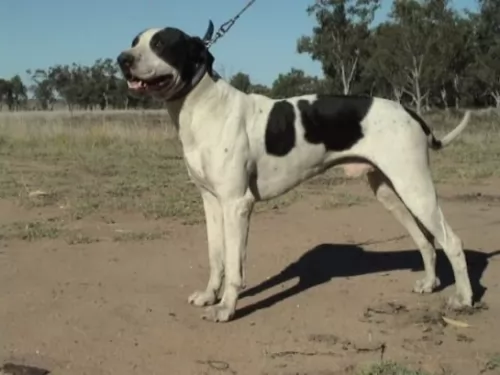 The Bully Kutta is a powerful, imposing dog and they have been nicknamed the ‘Beast from the East’. Unfortunately it is this dog’s thick bones, his looks and his strength that have him used for cruel dog fighting in Pakistan.
The Bully Kutta is a powerful, imposing dog and they have been nicknamed the ‘Beast from the East’. Unfortunately it is this dog’s thick bones, his looks and his strength that have him used for cruel dog fighting in Pakistan.
When not used for fighting, he makes a loyal, devoted companion for the owner who ensures proper socialization and training. Well raised Bully Kuttas are then good with children, being loving, protective and playful.
One just hopes that the future of this giant dog breed is brighter, and that he will be looked upon as more of a companion that just a dog-fighting object to bring in money for his owner.
 The Biewer Terrier is not a cross breed or hybrid and so does have some of the very serious health issues of the Yorkshire Terrier including the bane of small dogs with liver shunts. Liver shunts are fatal if they are not treated. The breed does have sensitive stomach issues as well. They face other small dog issues like floating patella’s, ear and skin infections. Other than this the Biewer Terrier is a very healthy breed.
The Biewer Terrier is not a cross breed or hybrid and so does have some of the very serious health issues of the Yorkshire Terrier including the bane of small dogs with liver shunts. Liver shunts are fatal if they are not treated. The breed does have sensitive stomach issues as well. They face other small dog issues like floating patella’s, ear and skin infections. Other than this the Biewer Terrier is a very healthy breed.
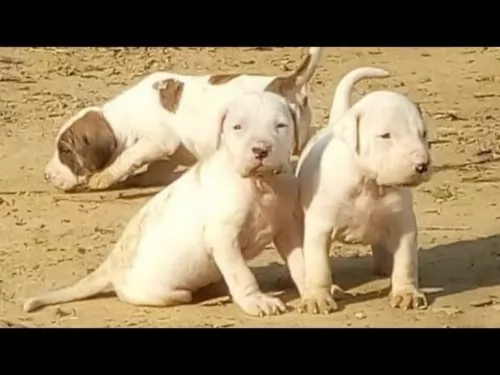 Your Bully Kutta is generally a healthy dog and not often affected by hereditary diseases, but with giant breeds such as this you will have to look out for diseases common to large dogs.
Your Bully Kutta is generally a healthy dog and not often affected by hereditary diseases, but with giant breeds such as this you will have to look out for diseases common to large dogs.
Typical illnesses to watch out for will include hip dysplasia, arthritis, skin allergies and bloat.
This is an inherited condition where the hip joint is improperly formed. For your Bully Kutta it causes wear and tear as well as stiffness in the hips and your dog battles to rise after lying down.
Arthritis in your dog can be managed but it can cause a lot of discomfort for him. This inflammation of the joints can cause pain and stiffness. It is more often seen in older dogs. It can also start at an early age because of problems with bone and joint development and abnormal rubbing within the joint.
Today there are a number of therapy options that can bring some kind of relief to your dog.
 As previously mentioned the Biewer Terrier has a very sensitive stomach and intestinal system. He should be fed low protein dry dog food. Watch for signs of food allergies such as scratching or chewing on his feet. Feed 2-3 times a day but the Biewer Terrier is one of the few dogs that you can safely free feed unless you notice substantial gaining of weight.
As previously mentioned the Biewer Terrier has a very sensitive stomach and intestinal system. He should be fed low protein dry dog food. Watch for signs of food allergies such as scratching or chewing on his feet. Feed 2-3 times a day but the Biewer Terrier is one of the few dogs that you can safely free feed unless you notice substantial gaining of weight.
Health issues are few as mentioned previously. However, make sure your Briewer’s ears are free of debris and wax, make sure their teeth are brushed and they show no signs of allergies. Along with liver shunts, sensitive intestinal and stomach issues and floating patellas, these are the other minor issues that might occur. Watch for diarrhea and off colored stools.
The Biewer Terrier is an active dog that needs regular exercise and walks. He is a speed demon as his ancestor the Yorkie is and needs an outlet for running as well as daily walks. They love to run, and they love to play. They do great in agility but love adventures. They are smart and love to learn tricks. Since they love hunting vermin they would also excel at Barn Hunt.
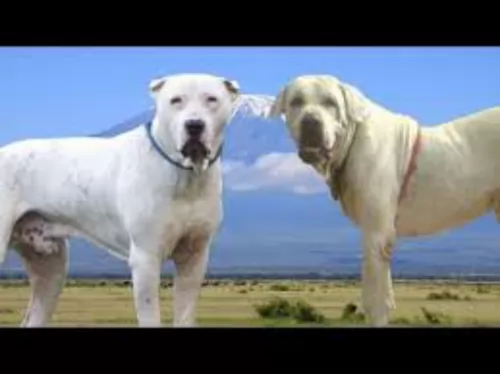 The short coat is low maintenance and as a moderate shedder too, all that is required really is to give your Bully Kutta a good brush twice a week to keep the coat in good condition.
The short coat is low maintenance and as a moderate shedder too, all that is required really is to give your Bully Kutta a good brush twice a week to keep the coat in good condition.
Brush his teeth 2 or 3 times a week with special canine-toothpaste and toothbrush to prevent plaque build-up. He’s a drooler too, so you will need to wipe his face and maybe your clothes of slobber from time to time.
This strong, muscular dog of yours will require an excellent diet. It’s always wonderful if you can give him home-made food such as vegetables, rice and meat. These days you get excellent commercially manufactured food for dogs, and your vet can advise you on the best food for a large, active dog such as the Buly Kutta.
Raw meat is absolutely essential for your dog from time to time and will ensure that his coat doesn’t become dull and with bald spots. Remember, that before dogs were domesticated they used to live on raw meat, so see that he gets some raw meat to prevent skin disorders. Make sure your large pet has a constant supply of fresh, cool water.
Bully Kuttas are going to need a walk every day in the form of exercise. If he is socialized you can take him into the park for ball games. He is a dog that will require plenty of space.